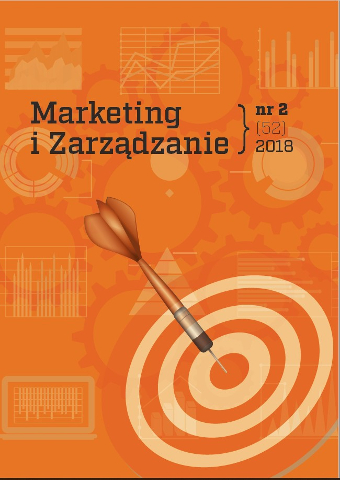
ISSN: 2450-775X
OAI
DOI: 10.18276/miz.2018.52-12


Issue archive /
nr 2 (52) 2018
Świadomość ekologiczna a dywergencja zachowań konsumentów na rynku turystycznym
(The Environmental Awareness and Divergence of Consumer Behaviors on the Tourist Market)
| Authors: |
Agnieszka
Niezgoda
Uniwersytet Ekonomiczny w Poznaniu, Wydział Gospodarki Międzynarodowej Ewa Markiewicz Uniwersytet Ekonomiczny w Poznaniu, Wydział Gospodarki Międzynarodowej |
| Keywords: | environmental awareness divergence of behaviors convergence of behaviors tourist market |
| Data publikacji całości: | 2018 |
| Page range: | 8 (129-136) |
| Klasyfikacja JEL: | P46 D04 Q01 Q56 L83 |
Abstract
The aim of the article is an attempt to answer the question if pro-ecological behaviours of consumers on the tourism market are the result of environmental awareness and stability of presented opinions or if they are the result of variability (divergence) of behaviours, influence of social groups and fad (short-term fashion). The theoretical part describes the problem of environmental awareness and divergence and convergence of behaviours, including the tourist market. In the empirical part based on a focused group there are diagnosed pro-ecological behaviours and a sense of responsibility for the condition of the environment. There is noticed a high environmental awareness of the respondents and few references to behavioural divergence. The respondents show rather convergence in behaviour about the future of the environment.
Download file
Article file
Bibliography
| 1. | Armstrong, D. (2009). Bringing Hofstede Home: Culture as an Impetus for Diverging Consumer Behaviorin the Local Market. Submission for the IACCM Conference 2009, WU-Wien, p. 24–26, June 2009 on Cross CulturalCompetence: Knowledge Migration, Communication and Value Change. |
| 2. | Bohdanowicz, P. (2008). Turystyka a świadomość ekologiczna. Toruń: Wydawnictwo Adam Marszałek. |
| 3. | Bartosik-Purgat, M. (2011). Kulturowe uwarunkowania zachowań konsumentów na przykładzie młodych Europejczyków. Poznań: Wydawnictwo Uniwersytetu Ekonomicznego. |
| 4. | De Mooij, M., Hofstede, G. (2002). Convergence and divergence in consumer behavior: implications for international retailing. Journal of Retailing, 78, 61–69. |
| 5. | Niezgoda, A. (2012). Moda na zachowania proekologiczne w turystyce ‒ uwarunkowania i problemy. W: J. Kowalczyk-Anioł, M. Makowska-Iskierka (red.), Turystyka moda na sukces (s. 9‒19). Łódź: Wydawnictwo Uniwersytetu Łódzkiego. |
| 6. | Papuziński, A. (2006). Świadomość ekologiczna w świetle teorii i praktyk. Problemy Ekorozwoju, 1 (1), 33‒40. |
| 7. | TNS Polska (2015). Raport z analizy badań świadomości, postaw i zachowań ekologicznych Polaków przeprowadzonych w Polsce w latach 2009–2015. Pobrano z: https://www.mos.gov.pl/fileadmin/user_upload/Raport_z_analizy_badan_swiadomosci__postaw_i_zachowan_ekologicznych_Polakow_przeprowadzonych_w_Polsce_w_latach_2009-2015.pdf. |
| 8. | Zalega, T. (2015). Zrównoważony rozwój a zrównoważona konsumpcja: wybrane aspekty. Konsumpcja i Rozwój, 4 (13), 3‒26. |